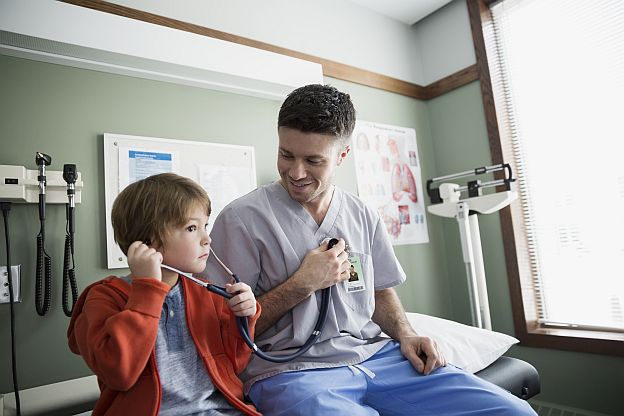The Chair of the Royal College of General Practitioners (RCGP) has called for GPs to be given more time to care; especially for patients who are isolated and lonely. Capturing information about these patients, who often have several comorbidities, is an important part of delivering their care, particularly with multidisciplinary teams. Recording sufficient level of detail in the electronic patient record (EPR) therefore becomes a crucial link and communication tool and with GPs hard-pressed for time, speech to text is one way this detail can be captured quickly and easily.
With UK general practice under significant pressure and GPs showing their frustration by threatening to leave the NHS, it feels as though we have reached a crisis point. The situation looks bad for GPs who struggle to spend what they feel is an appropriate amount of time with their patients. There is also a detrimental impact on patient care to consider, especially for those patients who are lonely and isolated.
Recently the Chair of the Royal College of General Practitioners made this a central theme at the RCGP’s annual conference in Liverpool. At the conference, Dr Stokes-Lampard said: “GPs see patients, many of whom are widowed, who have multiple health problems like diabetes, hypertension, and depression. But often their main problem isn’t medical: they’re lonely.
“The guidelines say we should be talking to them about their weight, exercise, and prescribing more medication, but really what these patients need is someone to listen to them and to find purpose in life. GPs need the time to care — don’t make us spend it ticking boxes, preparing for inspections, or worrying that we haven’t followed guidelines for fear of repercussions. Trust us to be doctors so that we can treat our patients like human beings and tailor their treatment to their needs.”
However, giving pressured GPs the task of addressing the complex issues of loneliness and social isolation is not only a big ask, it comes at a time when workloads have also increased. Research from the Universities of Oxford and Bristol published in The Lancet found that workloads in general practice have increased by 16 per cent over the past seven years.
These facts were echoed by the BMA’s Urgent Prescription for General Practice that calls for a safe manageable workload and more time with patients.
As I have highlighted in previous blogs, the primary care team is drowning under the burden of clinical documentation. When you take into account factors such as loneliness and social isolation, there is a wealth of relevant contemporaneous detail that needs to be recorded in the EPR.
This cannot be easily captured in a tick box type of documentation format and the unstructured output of the consultation needs to be recorded. This is one important area where the use of speech recognition could not only make that capture easier, but also save time with its completion.
Not being able to capture this level of detail in the EPR can have a significant impact for people who are a greater risk of developing health illnesses because they are lonely and isolated. From a multidisciplinary team perspective, it means there will be gaps in the record and a reduced likelihood that potential problems will be picked up.
This is just one area where capturing detail can be improved. GPs I have spoken are using speech to text for insurance reports, DVLC requests and also to send and receive emails.
If you are still in any doubt about whether it works, consider the results at the Dukinfield Medical Practice. The speed with which the reports are completed has enabled the practice to treat four more patients per day – this is particularly important for the practice, which is facing the challenge of patient numbers rising by approximately 5.0 per cent a year.
The GPs have also reported that patient letters are now much more detailed than before, capturing a more complete view of the patient’s story which, in turn, leads to better care. The new process has also enabled the secretarial team to concentrate on other, more patient-focused, tasks.
There are also financial savings that can be made as Waterloo Medical Group has discovered. By using speech recognition, it has been able to ease several of the pressure points shared by many doctors, while also making cost savings of approximately £15,000 within 12 months and improving the turnaround times for clinical documentation.
At the RCGP’s conference Dr Stokes-Lampard called for increased funding. “We need the £2.4bn [€2.7bn; $3.2bn] a year extra for general practice—promised in NHS England’s GP Forward View—delivered in England, in full. And we need equivalent settlements for Scotland, Wales, and Northern Ireland, and we need them fast,” she told the RCGP’s conference.
The extra funding would of course be welcome, but it has to be used effectively. The challenge for the NHS is how to ensure that can GPs benefit from technology like speech to text. NHS England has recognised the need for action to address GPs’ workload with a three-year £30m ‘Time to Care’ development programme, which will support the release of up to 10 per cent of GPs’ time. Investing in smart technology and innovative ways of working need to be factored in – and that includes painless yet simple ways to capture clinical data as part of the clinical documentation process – speech recognition has an important role to play to meet that need.







